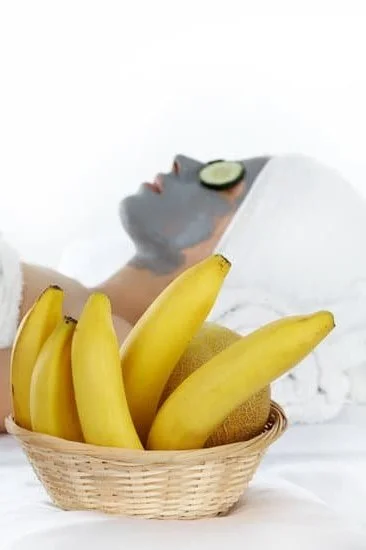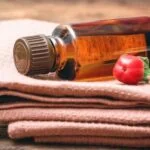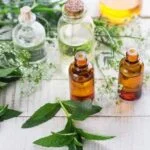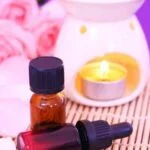Can you use rubbing alcohol for aromatherapy sprays? Aromatherapy has been used for centuries as a natural way to promote health and well-being. Aromatherapy sprays are a convenient way to enjoy the benefits of essential oils, but can rubbing alcohol be used as a substitute for essential oils in these sprays? In this article, we will explore the benefits of aromatherapy sprays and examine whether rubbing alcohol can be used as an alternative.
Aromatherapy sprays are becoming increasingly popular due to their ability to promote relaxation, improve mood, and even reduce stress and anxiety. These sprays typically contain a mix of water and essential oils, which are known for their therapeutic properties. However, some people may wonder whether rubbing alcohol can be used instead of essential oils in these sprays.
Rubbing alcohol is commonly used as a disinfectant and antiseptic, but it also has properties that make it suitable for use in aromatherapy sprays. In this section, we will delve into the properties of rubbing alcohol and discuss its potential role as a substitute for essential oils in aromatherapy sprays. We will also explore the safety considerations when using rubbing alcohol in these sprays and provide guidance on how to properly dilute it for use in aromatherapy blends.
Understanding the Properties of Rubbing Alcohol
Rubbing alcohol, also known as isopropyl alcohol, is a common household product known for its antiseptic properties. It is typically used to disinfect cuts and wounds, clean skin before an injection, or sterilize medical instruments. Rubbing alcohol has a strong odor and evaporates quickly when exposed to air. It is also flammable and should be handled with care.
One of the key properties of rubbing alcohol is its ability to act as a solvent, meaning it can dissolve other substances. This makes it a versatile ingredient in DIY cleaning products and homemade sprays. When used in aromatherapy sprays, rubbing alcohol helps to disperse the essential oils evenly throughout the liquid so that when sprayed, the fragrance can be dispersed into the air.
It is important to note that not all rubbing alcohols are created equal. The most common type found in households is 70% isopropyl alcohol, which contains 30% water. This lower concentration of alcohol may impact its effectiveness as a solvent for essential oils, so it’s important to consider this when using rubbing alcohol for aromatherapy sprays.
| Benefit | Information |
|---|---|
| Solvent Properties | Rubbing alcohol acts as a solvent and helps disperse essential oils evenly in aromatherapy sprays. |
| Concentration | Most household rubbing alcohols are 70% isopropyl alcohol and 30% water. |
Can Rubbing Alcohol Be Used as a Substitute for Essential Oils in Aromatherapy Sprays?
When it comes to making aromatherapy sprays, essential oils are typically the star of the show. But what if you don’t have any essential oils on hand? Can rubbing alcohol be used as a substitute for essential oils in aromatherapy sprays? Let’s explore the possibilities and considerations when using rubbing alcohol in place of essential oils.
Understanding the Role of Essential Oils
Essential oils are highly concentrated plant extracts that are known for their therapeutic properties. They are the key ingredient in aromatherapy sprays, providing both fragrance and potential health benefits. However, essential oils can be expensive and not always readily available. In such cases, some individuals may wonder if rubbing alcohol can serve as a viable alternative.
The Properties of Rubbing Alcohol
Rubbing alcohol, also known as isopropyl alcohol, is commonly used as a disinfectant and antiseptic. It has a strong odor and evaporates quickly when exposed to air. While it may not have the same aromatic qualities as essential oils, rubbing alcohol does have potential benefits when used in DIY aromatherapy sprays.
Possible Use Cases for Rubbing Alcohol
In some instances, rubbing alcohol can you use rubbing alcohol for aromatherapy sprays, especially if you want to create a spray for its germ-killing properties rather than its fragrance or therapeutic effects. For example, a homemade sanitizing spray that includes rubbing alcohol along with water and perhaps a small amount of scented oil may be suitable for use on household surfaces or even as a skin-friendly hand sanitizer.
However, using rubbing alcohol solely for its aromatic qualities in place of essential oils might not provide the same benefits.
Safety Considerations When Using Rubbing Alcohol in Aromatherapy Sprays
When using rubbing alcohol in aromatherapy sprays, it is important to consider safety measures to ensure that the spray is effective and safe for use. Here are some safety considerations to keep in mind:
1. Ventilation: When using rubbing alcohol in aromatherapy sprays, ensure that you are in a well-ventilated area. This will help to reduce the inhalation of fumes and prevent any potential respiratory irritation.
2. Skin Sensitivity: Rubbing alcohol may cause skin irritation for some individuals, especially those with sensitive skin. It is important to test a small amount of the aromatherapy spray on a small patch of skin before using it more widely, to determine if there is any adverse reaction.
3. Flammability: Rubbing alcohol is highly flammable, so it is important to store it in a safe place away from heat sources and open flames. Additionally, be cautious when spraying the aromatherapy spray near open flames or heat sources.
4. Inhalation: While rubbing alcohol can help to disperse the essential oils within the aromatherapy spray, inhaling large amounts of rubbing alcohol fumes can be harmful. It is important to use the spray sparingly and ensure that the room is well-ventilated.
By following these safety considerations, you can ensure that your DIY aromatherapy sprays using rubbing alcohol are both effective and safe for use.
Alternatives to rubbing alcohol for aromatherapy sprays:
– Witch Hazel: A natural astringent that can help mix and disperse essential oils in an aromatherapy spray.
– Distilled Water: Can be used as a base for aromatherapy sprays instead of rubbing alcohol for a less potent scent.
– Vegetable Glycerin: Helps to blend essential oils with water-based ingredients while also offering moisturizing properties when used as a base for aromatherapy sprays.
These alternatives provide safer options for creating aromatherapy sprays without the potential risks associated with using rubbing alcohol.
How to Properly Dilute Rubbing Alcohol for Use in Aromatherapy Sprays
Rubbing alcohol can be an effective alternative to essential oils in aromatherapy sprays. However, it is important to properly dilute the rubbing alcohol to ensure its safety and effectiveness. When using rubbing alcohol for aromatherapy sprays, it is recommended to dilute it with distilled water or a carrier oil. This will help minimize the strong scent of rubbing alcohol and make it safer for use on the skin.
To properly dilute rubbing alcohol for use in aromatherapy sprays, you can follow a simple recipe. Start by combining one part rubbing alcohol with three parts distilled water or carrier oil. For example, if you are making a 4-ounce aromatherapy spray, you can mix 1 ounce of rubbing alcohol with 3 ounces of distilled water or carrier oil. This will create a balanced solution that is safe and suitable for use as an aromatherapy spray.
It is important to note that when diluting rubbing alcohol for aromatherapy sprays, using too much rubbing alcohol can result in a harsh and overpowering scent. On the other hand, using too little may not effectively disinfect the spray. Finding the right balance is crucial to creating a pleasant and therapeutic aromatherapy spray that is safe for use on the body and in the home.
DIY Aromatherapy Spray Recipes Using Rubbing Alcohol
Benefits of DIY Aromatherapy Sprays
Aromatherapy sprays are a popular way to enjoy the benefits of essential oils. These sprays can be used for relaxation, stress relief, to uplift mood, relieve headaches, promote better sleep, and even as a natural air freshener. Using DIY aromatherapy sprays allows for customization based on personal preferences and specific needs. Creating your own spray also ensures that you know exactly what ingredients are being used.
Creating a Basic Aromatherapy Spray With Rubbing Alcohol
To create a basic aromatherapy spray using rubbing alcohol, you will need:
- A clean spray bottle
- Distilled water
- Rubbing alcohol
- Essential oil(s) of your choice
- Optional: witch hazel or vegetable glycerin for added moisture
Start by adding 1/4 cup of rubbing alcohol to the spray bottle followed by 20-30 drops of essential oil. The alcohol helps disperse the essential oil evenly throughout the water without separating. Next, fill the bottle with distilled water leaving some space at the top. If desired, add 1 teaspoon of witch hazel or vegetable glycerin for added moisture and skin benefits. Shake well before each use to ensure the oil mixes evenly.
Customizing Your Aromatherapy Spray Recipes
The beauty of creating DIY aromatherapy sprays is that you can customize them to suit your personal preferences and needs. For example, if you prefer a more calming scent, consider using lavender or chamomile essential oils; if you want an energy boost, try peppermint or citrus oils. Additionally, adjusting the amount of essential oil used can create a stronger or lighter scent based on individual preferences.
Remember to always label your aromatherapy sprays with their contents and intended purpose to avoid confusion when using them in the future.
By creating your own aromatherapy sprays using rubbing alcohol and essential oils, you can enjoy the therapeutic benefits while knowing exactly what is going into your products.
Alternatives to Rubbing Alcohol for Aromatherapy Sprays
Rubbing alcohol is a commonly used ingredient in DIY aromatherapy sprays due to its ability to help disperse essential oils evenly. However, for those who prefer not to use rubbing alcohol in their aromatherapy sprays, there are several alternatives that can be used as a substitute. Here are some options to consider:
1. Witch Hazel: Witch hazel is a natural astringent that can be used as a base for aromatherapy sprays. It has soothing properties and can help to tone and tighten the skin.
2. Distilled Water: Distilled water can be used as a simple and effective alternative to rubbing alcohol in aromatherapy sprays. It helps to dilute the essential oils and is gentle on the skin.
3. Aloe Vera Juice: Aloe vera juice is known for its hydrating and soothing properties, making it a great option for use in aromatherapy sprays. It can also help to enhance the overall skin-nourishing benefits of the spray.
When choosing an alternative to rubbing alcohol for your aromatherapy spray, it’s important to consider the specific properties and benefits of each ingredient. Additionally, it’s crucial to properly dilute essential oils when using them in any type of spray, whether with rubbing alcohol or an alternative ingredient, to avoid skin irritation or adverse reactions.
Ultimately, while rubbing alcohol may be a common choice for DIY aromatherapy sprays, there are several effective alternatives available that provide similar benefits without the use of alcohol if preferred. By exploring these options, individuals can customize their aromatherapy experience based on their personal preferences and needs.
Conclusion
In conclusion, while rubbing alcohol can be used as a substitute for essential oils in aromatherapy sprays, it is important to consider the potential safety implications. While rubbing alcohol does have antibacterial and disinfectant properties, it lacks the therapeutic benefits of essential oils. It may be best to use rubbing alcohol sparingly and in combination with essential oils for a more well-rounded aromatherapy experience.
When using rubbing alcohol in aromatherapy sprays, it is crucial to dilute it properly to avoid skin irritation and other adverse reactions. A general rule of thumb is to use a small amount of rubbing alcohol and mix it with water before adding a few drops of essential oil. This will ensure that the spray provides the desired aromatic benefits without causing any harm.
In essence, while rubbing alcohol can be used for DIY aromatherapy sprays, it is not a perfect substitute for essential oils. Proper care should be taken when using rubbing alcohol in aromatherapy sprays, and individuals are encouraged to explore alternative options if they have sensitivities or concerns about using rubbing alcohol in their aromatherapy routines.
Frequently Asked Questions
Can You Use Rubbing Alcohol to Make Air Freshener?
Rubbing alcohol can be used to make air freshener by mixing it with essential oils and water. The alcohol helps the oils disperse and evaporate quickly, leaving a fresh scent in the air.
What Alcohol Is Used in Aromatherapy?
In aromatherapy, the alcohol commonly used is ethyl alcohol or ethanol. This type of alcohol can help to disperse essential oils when making room sprays, body sprays, or other aromatherapy products.
How Do You Make Essential Oil Body Spray With Alcohol?
To make an essential oil body spray with alcohol, you will need to mix distilled water with your choice of essential oils and a small amount of alcohol such as vodka or rubbing alcohol. The alcohol helps the oils mix well with the water and also acts as a preservative for the spray.

Are you looking for a natural way to improve your health and wellbeing?
If so, aromatherapy may be the answer for you.





